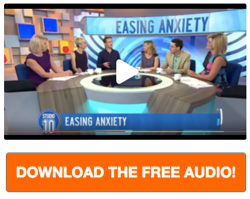Anxiety and depression are two separate entities but they can occur simultaneously. The common notion is that anxiety becomes uncontrollable and this state of mind is rife for the seeds of a more debilitating disorder, depression. The ideal way to deal with depression is prevention. Get help even before the anxiety disorder becomes too hard to handle.
You know you need help when you start showing physical symptoms of anxiety and depression whenever you think of situations that bring up what you constantly worry about.
The nature of anxiety disorders is variable, and depends on which aspect of your life is most affected by it. If you feel like you’re about to be sick at the thought of being around people, you may be suffering from social anxiety. If your job is making you feel inferior, or you end up being defensive after a project you spearheaded failed, you may be suffering from work performance anxiety. Sometimes, the anxiety is general and you cannot pinpoint the stimuli for it. All you know is that you have palpitations, you feel weak and you faint when some bad scenario you imagined is about to become real.
Now, let’s talk about panic attacks and their relationship with depression. Not all anxiety-ridden individuals show panic attacks chronically, but all people that show panic attacks have some sort of anxiety disorder. Panic attacks, like anxiety attacks, typically come at any time without you knowing where the stimulus is coming from. Why you’re panicking is a mystery to you, so you tend to stay closed and quiet about the incident, even when your friends ask you what’s wrong.
Having anxiety attacks or panic attacks frequently may be the main risk factor for depressive disorders. You can’t explain why you suddenly show symptoms of panic, so you tend to avoid being with others just so they won’t see you at your worst. The same thing applies in a family scenario. When a parent is suffering from anxiety attacks, the spouse and the children need to cope with it. It’s more difficult explaining something when you yourself don’t even know what it is. What you know is that the fear is real, and it’s taking control of your senses. You feel numb, tingly and fearful that something bad will definitely happen soon and you cannot do anything about it.
Anxiety disorders turn into huge obstacles when they start interfering with normal family life and your relationship with friends. They try their best to understand you, and you feel increasingly guilty about not being able to explain what you really feel. You feel isolated because it seems that you’re the only one that feels this way. You have a sinking sensation that people will sever ties with you just because you make them feel awkward.
Depression sets in when the afflicted individual feels like he may continue to deal with this kind of reaction from others for the rest of his or her life. Some people, however, never let this happen. They seek help or find ways to help themselves before the anxiety gets worse. This way, the depression that is always lurking around waiting for a chance to strike, will never rear its ugly head.
While therapy is the best option, there are many resources out there that teach you how to cope with anxiety, and how to finally beat the feeling of worry.
back to Anxiety Symptoms
